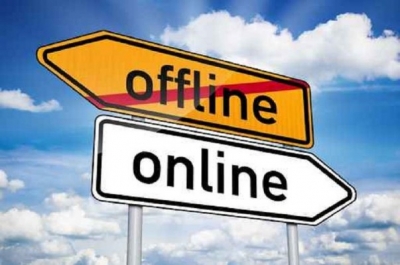You can consider yourself lucky to be reading this blog. Despite the huge leaps in technology and online access, according to recent research 20% of UK adults (that’s 10.5 million people), lack the basic online skills needed to browse the internet, send emails or complete online forms.
The UK is digitalising. From travel apps to social services, we are seeing a gradual but inescapable move to online service provision. And it’s a positive move – it saves businesses and consumers time and money but it could also make the state much more efficient. According to the Digital Efficiency Report the government could save between £1.7 and £1.8 billion each year by digitalising public services. For example, the report estimates that transactions online can be 20 times cheaper than by phone, 30 times cheaper than by post and as much as 50 times cheaper than face-to-face.
However, not everyone is prepared for the move. As the government migrates services to self-serve channels, those without online access or those who are not computer-literate, may begin to miss out on government services. This wouldn’t just impact individual lives but families, communities, and increasingly political process, democracy, public services – and as the digital gap grows – the economic and social health of the nation as a whole.
According to a LITRG report into digital exclusion, the main determinant of digital exclusion is age, but there are other significant factors, often combined with low income, including disability, learning difficulties, ethnic origin, location, culture and language. People who are digitally excluded are also likely to be disproportionately heavy users of government services. For example, nearly 50% of those seeking help on tax and tax credit issues do not have access to a computer.
The long-term plan needs to be to equip everyonewith basic digital skills
Education and training in basic digital skills would actually have the biggest impact on the lives of the most vulnerable people in society. In health and social care, online access could help someone to understand and better manage a chronic health condition or it could help an elderly person to keep in contact with friends and family. Basic digital skills are also needed to apply for the 25% of jobs in the UK that are only advertised online. The government could of course guarantee a basic level of offline support to prevent outright exclusion but that wouldn’t avert the inherent disadvantages of being digitally excluded.
We must address the reasons behind digital exclusion
Speaking at a recent TechUK event ‘Opening Doors – Digital Inclusion by 2020’ Rachel Neaman, CEO of GO ON UK outlined four main barriers to digital inclusion:
1. Cost – or the perception of cost (including time) associated with acquiring digital skills
2. Access – to the internet or even a computer
3. Skills – and the confidence to acquire those skills
4. Motivation – the main barrier, and possibly the most difficult to overcome
New digital inclusion initiatives and projects are popping up all the time. DigitalSkills.com is a good example of cross-sector cooperation with government support – but the state should be doing much more to raise awareness about the importance of acquiring these basic digital skills. Businesses and individuals alike need more support in moving online and making the digital transition. Supporting SMEs and charities with the digital transition also needs to be prioritised – and benefits of digital must be articulated more clearly. According the UK Business Digital Index Report, 35% of UK SME’s have “done it all” digitally, yet only 50% have a website!
Basic digital skills and digital communications for individuals, as well as a small businesses and organisations are no longer just a “nice to have” but are increasingly essential in managing day-to-day communications in modern society. We cannot allow a digital gap to grow as it will further deepen social divides and social exclusion of the most vulnerable and disadvantaged in our society. We have to work together to make sure that no one is left behind.




